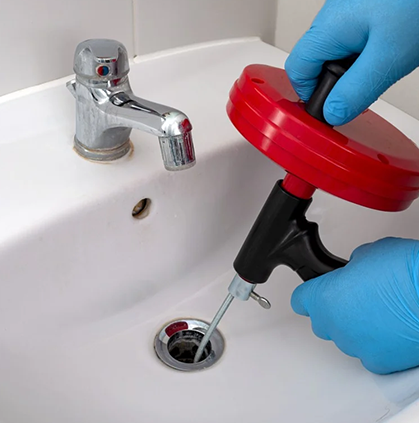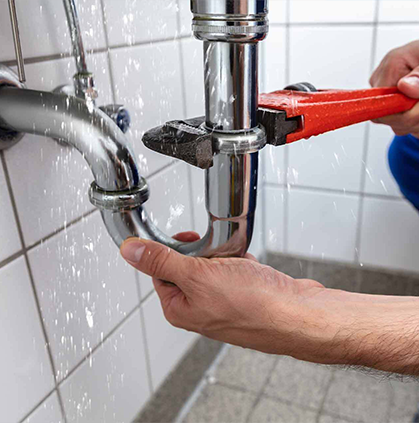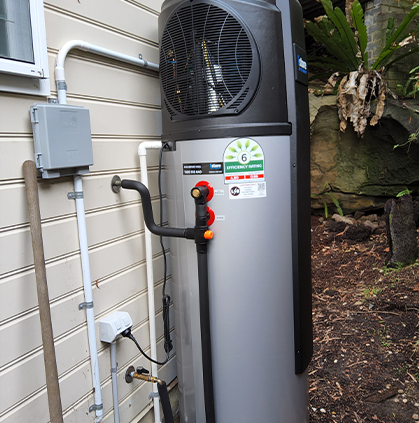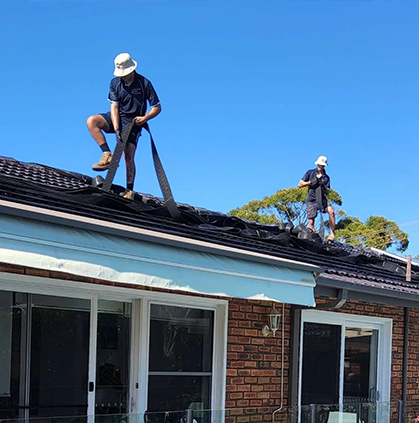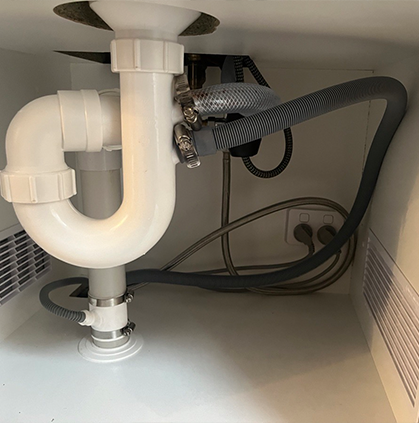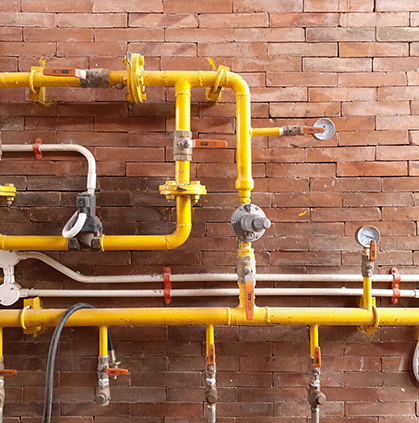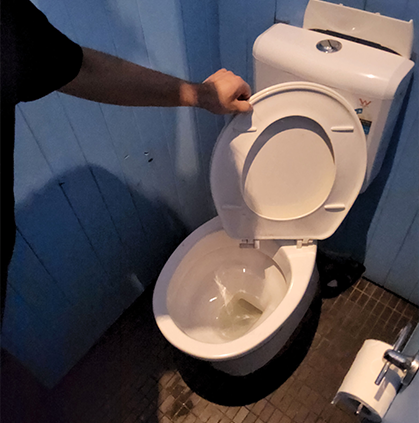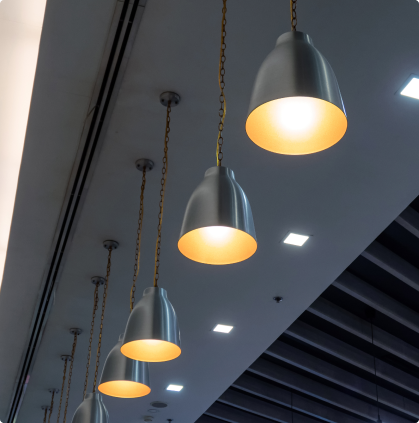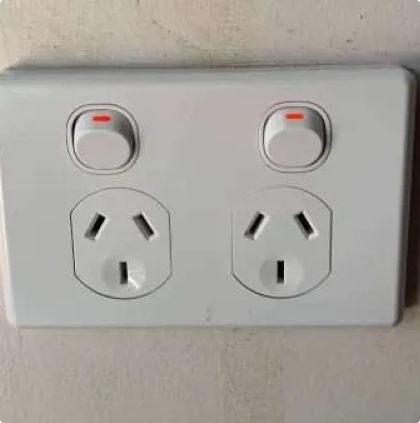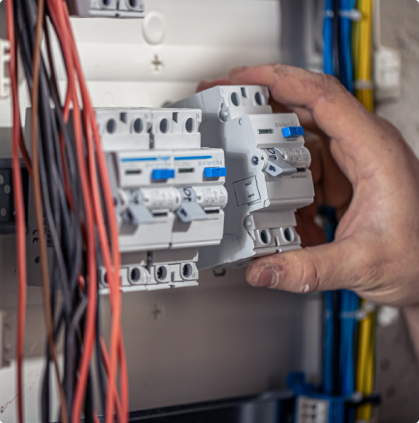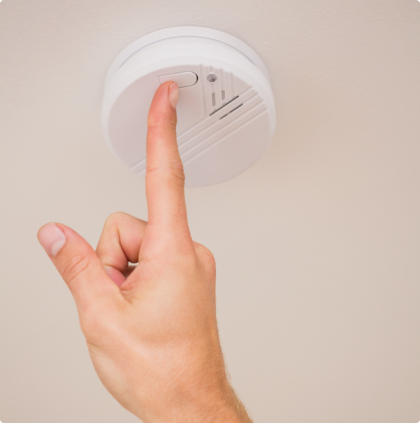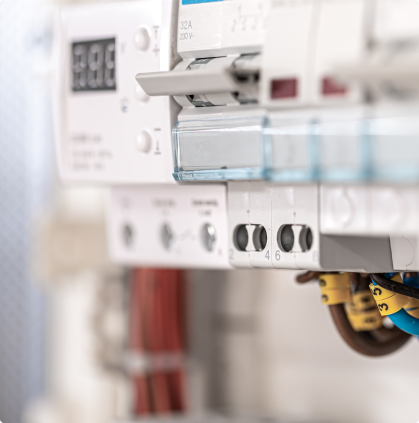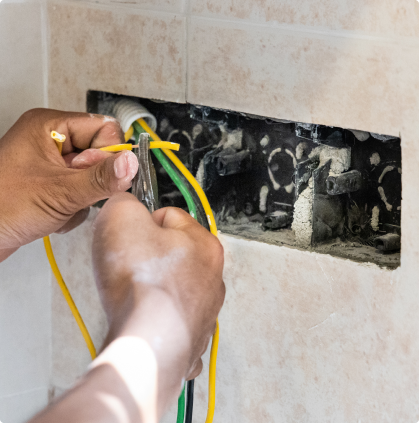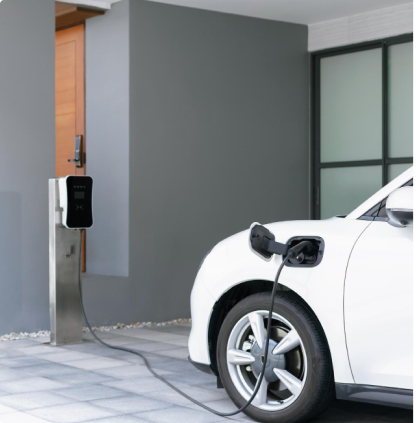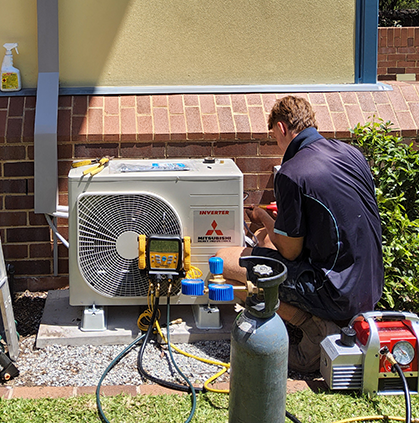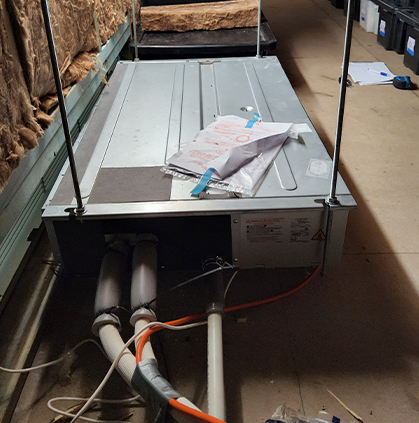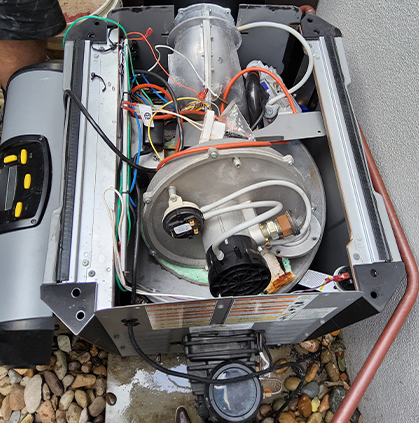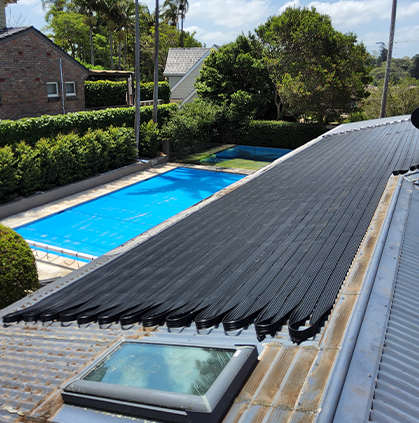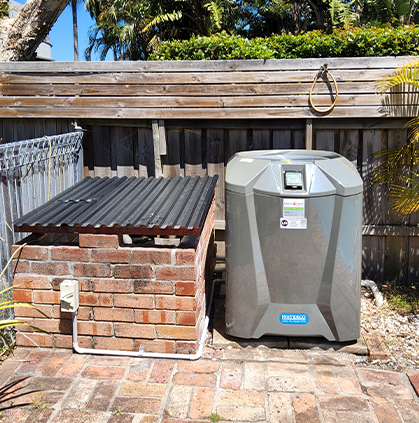Few things are more unsettling than walking into your home on a hot day and spotting a puddle of water forming beneath your air conditioner. You might wonder, is my AC broken, or is this just something normal that happens?
The truth is, while a small amount of condensation is expected, water leaking from your air conditioner is usually a sign that something isn’t quite right.
The good news? Most of the time, it’s not a disaster waiting to happen. But it’s definitely something you shouldn’t ignore.
In this article, we’ll walk you through why your air conditioner might be leaking, whether it’s dangerous, and the steps you can take to fix the issue before it gets worse.
Is a Leaky Air Conditioner Normal or Dangerous?
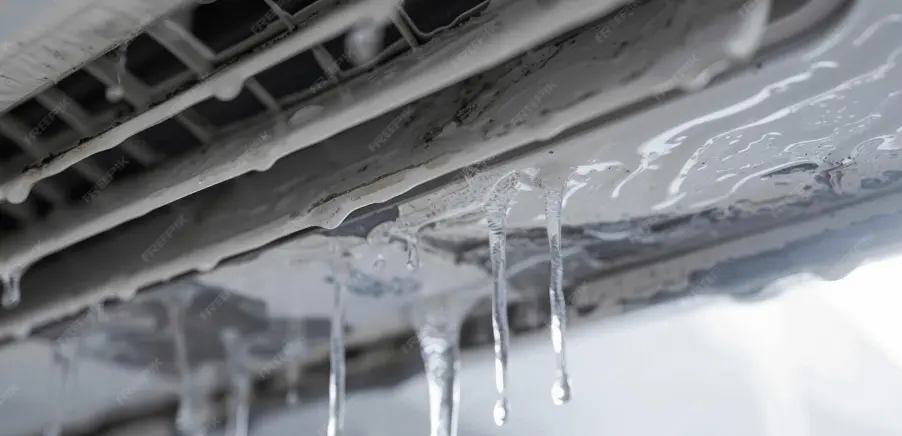
The short answer: a little bit of water is normal, but a leak isn’t.
Here’s why: Air conditioners naturally pull moisture from the air as they cool your home. That moisture collects on the evaporator coil and usually drains away through a condensate drain line.
So, a small trickle of water or some condensation outside the unit isn’t something to panic about.
But if you notice visible puddles, steady dripping, or water pooling inside your home, that’s when it becomes a problem.
Not only can a leak damage your walls, floors, and ceiling, but it can also hint at a deeper issue, like a clogged drain line, a frozen coil, or even low refrigerant.
If left unchecked, a leaky AC can cause:
- Water damage and mould growth inside your home.
- Reduced cooling efficiency (your AC has to work harder).
- Higher energy bills.
- Potential electrical hazards if the water reaches wiring.
So while a little condensation is part of the process, an actual leak is a red flag.
Why is Your Air Conditioner Leaking Water?
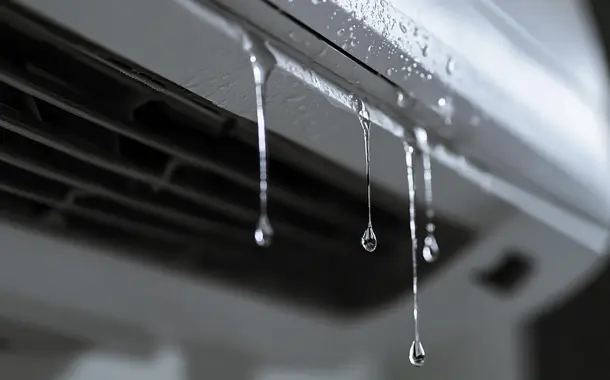
A leaking air conditioner can be caused by several things. Here are the main reasons your AC might be dripping where it shouldn’t:
- Clogged Condensate Drain Line: The drain line’s job is to carry water away from your unit. Over time, dust can block it. When this happens, the water has nowhere to go, so it backs up and spills out.
- Dirty or Blocked Air Filter: When your AC filter is dirty, airflow is restricted. This causes the evaporator coil to get too cold and freeze. Once it melts, you end up with more water than your drain line can handle.
- Low Refrigerant Levels: Low refrigerant makes the evaporator coil too cold, causing it to freeze up. Just like with a dirty filter, when the ice melts, excess water leaks out.
- Damaged or Rusted Drain Pan: The drain pan collects condensation before it flows down the drain line. If the pan is cracked, rusted, or overflowing, water can drip onto your floor instead.
- Improper Installation: If your air conditioner—especially a split system installation—wasn’t set up correctly, issues with tilt or drainage can cause leaks right from the start.
- Frozen Evaporator Coil: Aside from dirty filters and low refrigerant, poor airflow due to duct problems can also freeze the coil, leading to leaks once it thaws.
Each of these issues has a different fix, but the first step is knowing which one you’re dealing with.
What Should You Do If Your Air Conditioner is Leaking?
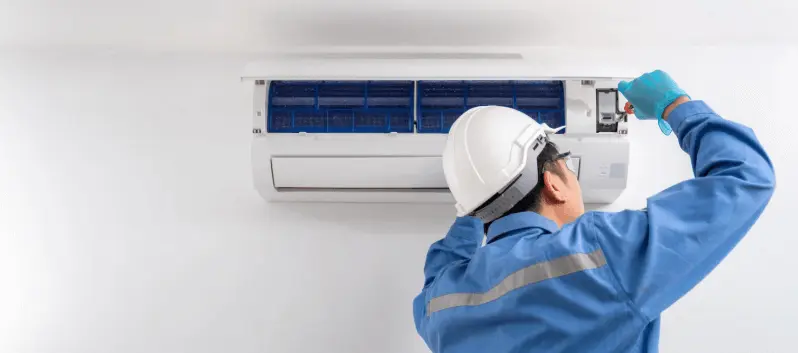
If you notice water pooling around your air conditioner, don’t panic. In many cases, the issue can be resolved with a few simple steps. Here’s what you can do:
- Turn Off Your AC: First things first—switch off your unit. This prevents further leaking and gives you a chance to safely check what’s going on without risking damage or electrical issues.
- Check the Air Filter: Pull out your filter and see if it’s clogged with dust. If it’s dirty, replace it or clean it (if it’s reusable). A fresh filter helps restore proper airflow and prevents the evaporator coil from freezing.
- Inspect the Drain Line: If you’re comfortable doing so, check the condensate drain line for clogs. Sometimes flushing it with warm water or a mild vinegar solution can clear out dirt or algae buildup.
- Look at the Drain Pan: Take a peek at the drain pan under your unit. If it’s cracked, rusted, or overflowing, it may need to be replaced. A temporary fix is to empty the pan, but long term, you’ll want a new one.
- Examine the Coils: If you see ice on your evaporator coils, it could be from restricted airflow or low refrigerant. Let the ice thaw naturally by leaving the unit off. Never try to scrape it off—it can damage the coil.
- Call a Professional: If you’ve tried the above steps and your AC is still leaking, it’s best to contact a licensed technician.
At Lightning Bult, we help homeowners with everything from air conditioning services and maintenance to ducted air conditioning repair and leak troubleshooting.
Sometimes a quick professional inspection can save you from expensive repairs down the line.
Also Read: What Should You Do If Your AC Doesn’t Blow Cold Air?
FAQ about Leaking Air Conditioners
Can I still use my AC if it’s leaking water?
Technically, yes—you can still run it if it’s leaking. But it’s not a good idea.
Water leaks can cause damage to your floors, walls, and even the AC itself. Plus, if the leak is caused by something like a frozen coil or low refrigerant, running the unit will only make the problem worse.
It’s always safer to switch it off and troubleshoot the issue first.
How long can I run my AC if it is leaking water?
Not long. If you notice water dripping, it’s best to stop using it right away.
Running it for hours or days while leaking can lead to water damage and possibly electrical hazards if the water comes into contact with wiring.
Think of it like driving a car with the oil light on. You might get away with it, but the risk isn’t worth it.
Can a dirty filter cause an air conditioner to leak water?
Absolutely. A dirty air filter is one of the most common reasons for leaks.
When airflow is blocked, your evaporator coil can get too cold and freeze. When the ice melts, it creates more water than the drain pan and line can handle, leading to leaks.
The simple fix? Replace or clean your filter regularly.
Will my AC stop leaking if I turn it off?
Turning off your AC will stop it from producing more condensation, so the leak may pause temporarily. But it won’t fix the underlying problem.
If the cause is a clogged drain, cracked pan, or low refrigerant, the leak will come back as soon as you turn it on again.
Shutting it down is a good first step, but you’ll still need to address the root cause.
Conclusion
A leaking air conditioner isn’t something you want to ignore. While a little condensation is normal, steady drips or puddles usually point to a bigger issue.
Fortunately, many causes of leaks are simple to fix, especially if you catch them early. But if the problem keeps coming back (or if you’re not sure what’s causing it) it’s best to call in a professional.
At Lightning Bult, we’ve been helping homeowners across Sydney keep their homes cool and comfortable with reliable air conditioning services.
Whether you need a quick repair, a brand-new split systems installation, or a thorough ducted air conditioning repair, our licensed team is here to help.
So if your AC is leaking (or just not performing the way it should) don’t sweat it. Give Lightning Bult a call, and let’s get your system back in top shape.



